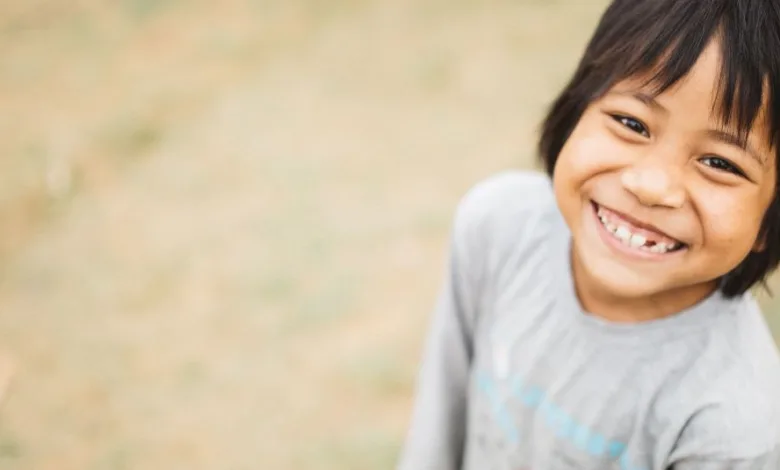Bringing Hope into the Lives of Orphaned Children in Pakistan: A Call to Action

In the heart of Pakistan, amidst its bustling cities and serene landscapes, lie countless orphaned children, facing a world devoid of parental care and guidance. While Pakistan is rich in culture and heritage, it also grapples with socio-economic challenges that leave many children vulnerable and without a stable home environment. However, amidst these challenges, there is hope—a beacon of light that can transform the lives of these children and provide them with the love, support, and opportunities they deserve.
The Plight of Orphaned Children in Pakistan:
Pakistan, like many developing countries, faces significant issues related to poverty, inequality, and lack of access to education and healthcare. These issues disproportionately affect orphaned children, who often find themselves living on the streets or in overcrowded orphanages, struggling to meet their basic needs. Without parental guidance and support, they are at risk of exploitation, abuse, and a future filled with uncertainty.
Moreover, societal stigma surrounding orphanhood adds another layer of challenge for these children. They may face discrimination and prejudice, further exacerbating their sense of isolation and hopelessness. In a society where family plays a central role, orphaned children often feel like outsiders, longing for the sense of belonging and security that family provides.
Bringing Hope through Education:
Education serves as a powerful tool for breaking the cycle of poverty and empowering orphaned children to build a brighter future for themselves. By providing access to quality education, we can equip these children with the knowledge, skills, and confidence they need to pursue their dreams and become agents of change in their communities.
Numerous organizations and initiatives in Pakistan are dedicated to providing educational opportunities for orphaned children. From schools specifically designed for orphans to scholarship programs that support their academic pursuits, these efforts are instrumental in opening doors and expanding horizons for disadvantaged youth. By investing in their education, we invest in the future of Pakistan, nurturing a generation of leaders who will drive progress and innovation in the years to come.
Empowering Through Skills Training and Vocational Education:
In addition to formal education, skills training and vocational education play a crucial role in empowering orphaned children to thrive in the workforce and achieve economic independence. By equipping them with practical skills such as carpentry, sewing, or computer literacy, we enable them to secure sustainable livelihoods and contribute to the economic development of their communities.
Moreover, skills training instills a sense of purpose and self-worth in these children, helping them realize their potential and pursue their passions. Whether it’s learning a trade or mastering a craft, acquiring practical skills empowers orphaned children to take control of their futures and build fulfilling lives for themselves.
Fostering Emotional Well-being and Resilience:
Beyond material support, it’s essential to prioritize the emotional well-being of orphaned children and provide them with the love, care, and support they need to heal from past traumas and thrive in the present. Counseling, therapy, and mentorship programs can offer them a safe space to express their feelings, process their experiences, and develop healthy coping mechanisms.
Furthermore, fostering a sense of community and belonging is crucial for orphaned children to feel valued and accepted. By creating support networks and peer-to-peer connections, we can mitigate feelings of loneliness and isolation, nurturing a sense of camaraderie and solidarity among these children.
Promoting Foster Care and Adoption:
While orphanages serve as a temporary solution for providing care and shelter to orphaned children, the ultimate goal should be to place them in loving, permanent families through foster care and adoption. By promoting adoption within the country and streamlining the adoption process, we can give orphaned children the opportunity to experience the stability and security of a family environment.
Additionally, fostering a culture of acceptance and inclusion can help combat the stigma associated with adoption in Pakistan. By challenging misconceptions and highlighting the benefits of adoption, we can encourage more families to open their hearts and homes to orphaned children, giving them the chance to thrive in a nurturing family environment.
Conclusion:
Bringing hope into the lives of orphaned children in Pakistan requires a multi-faceted approach that addresses their educational, emotional, and social needs. By investing in their education, empowering them with practical skills, nurturing their emotional well-being, and promoting adoption and foster care, we can create a brighter future for these children and transform their lives for the better.
As individuals, communities, and organizations, we all have a role to play in this endeavor. Whether through financial support, volunteer work, or advocacy efforts, each contribution brings us one step closer to realizing the vision of a Pakistan where every child, regardless of their circumstances, has the opportunity to thrive and succeed. Together, let us stand in solidarity with orphaned children, offering them not just a glimmer of hope, but a beacon of light that illuminates their path towards a brighter tomorrow.



